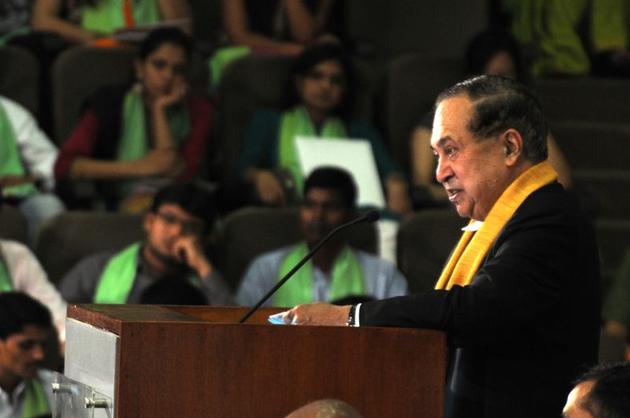by N. RAM
 N Ram, Chairman, Kasturi & Sons Ltd, addressing the 75th convocation of Tata Institute of Social Sciences (TISS) in Mumbai PHOTO/The Hindu/The Hindu Centre
N Ram, Chairman, Kasturi & Sons Ltd, addressing the 75th convocation of Tata Institute of Social Sciences (TISS) in Mumbai PHOTO/The Hindu/The Hindu Centre
There may be various opinions on the formidable range of issues and controversies in which Dr. Ambedkar figured as a protagonist during four decades of his public life — which can be said to have begun with the brilliant paper he did on “The Castes in India, Their Mechanism, Genesis and Development” for Alexander Goldenweiser’s anthropology seminar at Columbia University, New York in May 1916.
Dr Ambedkar was a transparently honest, challenging, and eclectic liberal thinker. He was attracted to utilitarianism, and eventually to Buddhism, in philosophy. He found inspiration in the ideals of the French Revolution and also in the socially forwardlooking and humanistic elements and values in Indian culture and civilization over the millennia. He delved into the Marxist classics, going so far as to claim, during the historic anti-khot mobilization of peasants in Bombay in early 1938, that “I have definitely read studiously more books on the Communist philosophy than all Communist leaders here.” However, he was not persuaded either by the revolutionary theory of Marxism-Leninism or by the practice of socialism in his time. He was sharply and emphatically opposed to Gandhism and to the Congress’s ideology, although on certain social issues he held views in common with Jawaharlal Nehru – who, as Prime Minister, badly let down his Minister of Law on the Hindu Code Bill in the early 1950s.
The Hindu Centre for more
